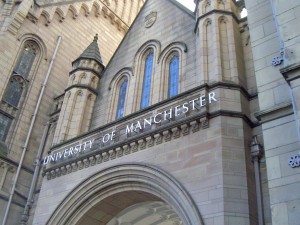‘Working Together’: new research project aims to engage autistic community
Article published: Saturday, November 7th 2015
Researchers at the University of Manchester are appealing to members of the local autism community to participate in a series of workshops entitled ‘Working Together’, designed to help make research more relevant to people with autism spectrum conditions. Approximately 1% of the UK population has an autism spectrum condition, but many feel that the research does little to engage the community or translate advances and understanding into people’s lived experiences.
‘Working Together’ will discuss research with members of the autistic community, focusing on the research process, findings and any barriers that can arise. “We need to find out what their priorities are so we can tailor our research”, said Dr Emma Gowen, organiser of the project. “We also need to educate the autism community about the research process, so they develop realistic expectations and can choose how they would prefer to contribute.” Ultimately, the project aims to have participants develop research that is relevant to the issues they face in their daily lives.
A recent study investigating the focus of autism research found that some participants felt ‘like monkeys in a zoo’, highlighting the fact that whilst they were invited to participate in research, they were seldom informed of the results of studies or how findings could impact upon their lives. Others felt that researchers acted as though they ‘[had] the right to talk down’ to the participants because of their diagnosis.
Many felt that research came too often from a medical perspective, rather than a social one. Results were only available in academic journals, which are expensive and written in prohibitive scientific terminology, making them an indecipherable jumble of complex jargon to those outside of the academic community.
Tying into this is a history of controversial autism research, such as the debunked study claiming that the development of autism conditions was linked to the MMR vaccine. The concern is that claims like this alienate the community by treating autism as an illness that can be caught or cured.
One participant in the study, an adult with autism, stated: “I find a majority of autism researchers I have managed to speak to unapproachable and more concerned with engaging in academic debates about autism as opposed to speaking to autistics.” ‘Working Together’ is seeking to bridge this gap, encouraging those taking part to be active participants, rather than letting them leave feeling like specimens in a laboratory.
As well as striving to make research more relevant, the organisers are also emphasising the need for funding. “Provision can be patchy and autistic adults and parents have told me there is very little support following diagnosis,” said Gowen. “There are few evidence-based interventions so more funding is required to understand what therapies work.”
As the government continues to strip back support from the communities that need it the most, inequality of opportunity for those on the autism spectrum will only increase unless research can become more effective in helping autistics to integrate into their local communities.
Edward Poole
The workshops will be taking place between the 11th and the 25th of November. Results and footage will be made public on the Autism@Manchester website.
More: Education, News, QuickKick
Comments
-
Their website doesn’t give any dates or venues for these workshops that you mention.
http://www.autism.manchester.ac.uk/aboutautismmanchester/events/
Comment by Louise on November 8, 2015 at 3:41 pm
The comments are closed.




